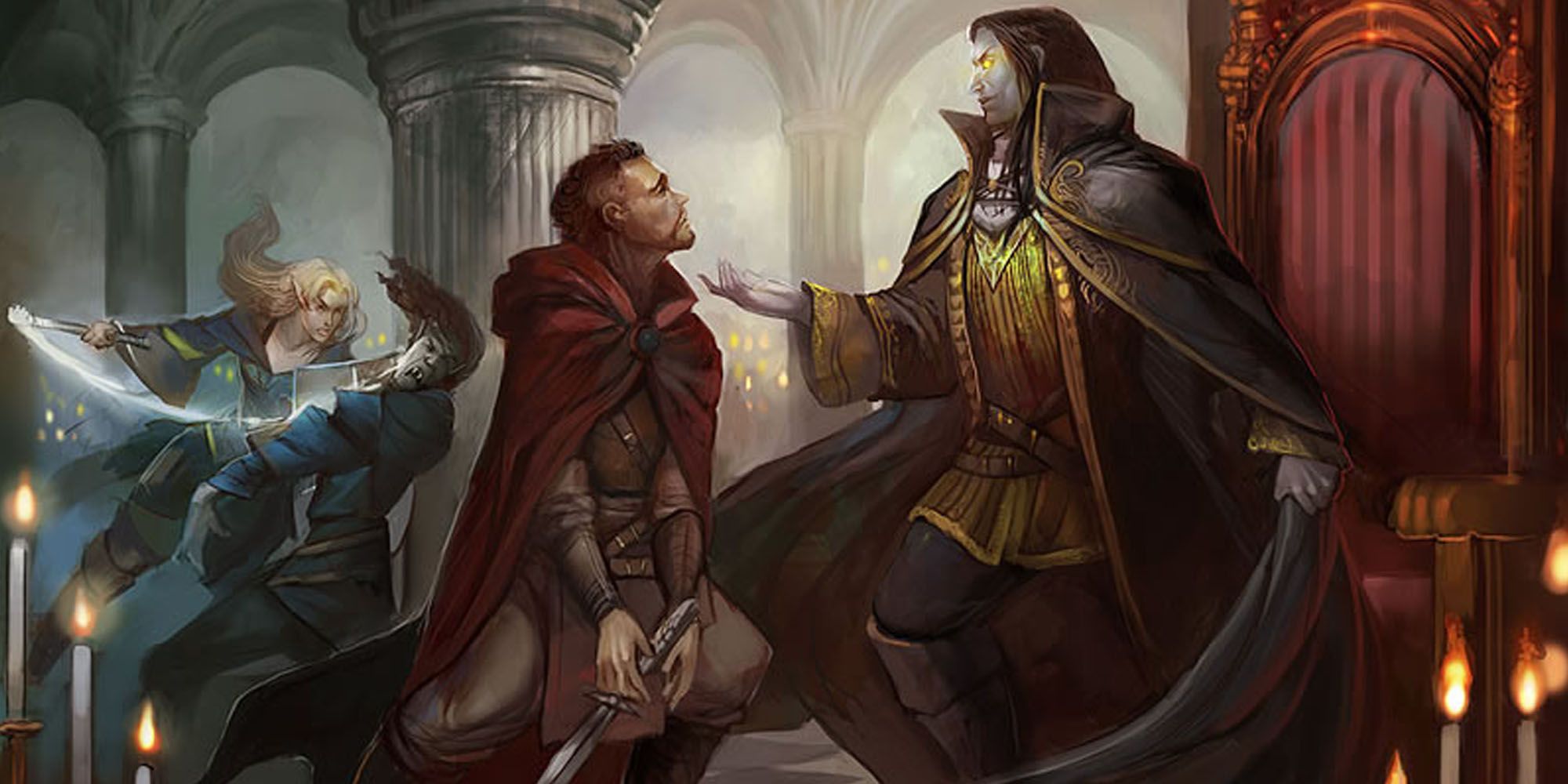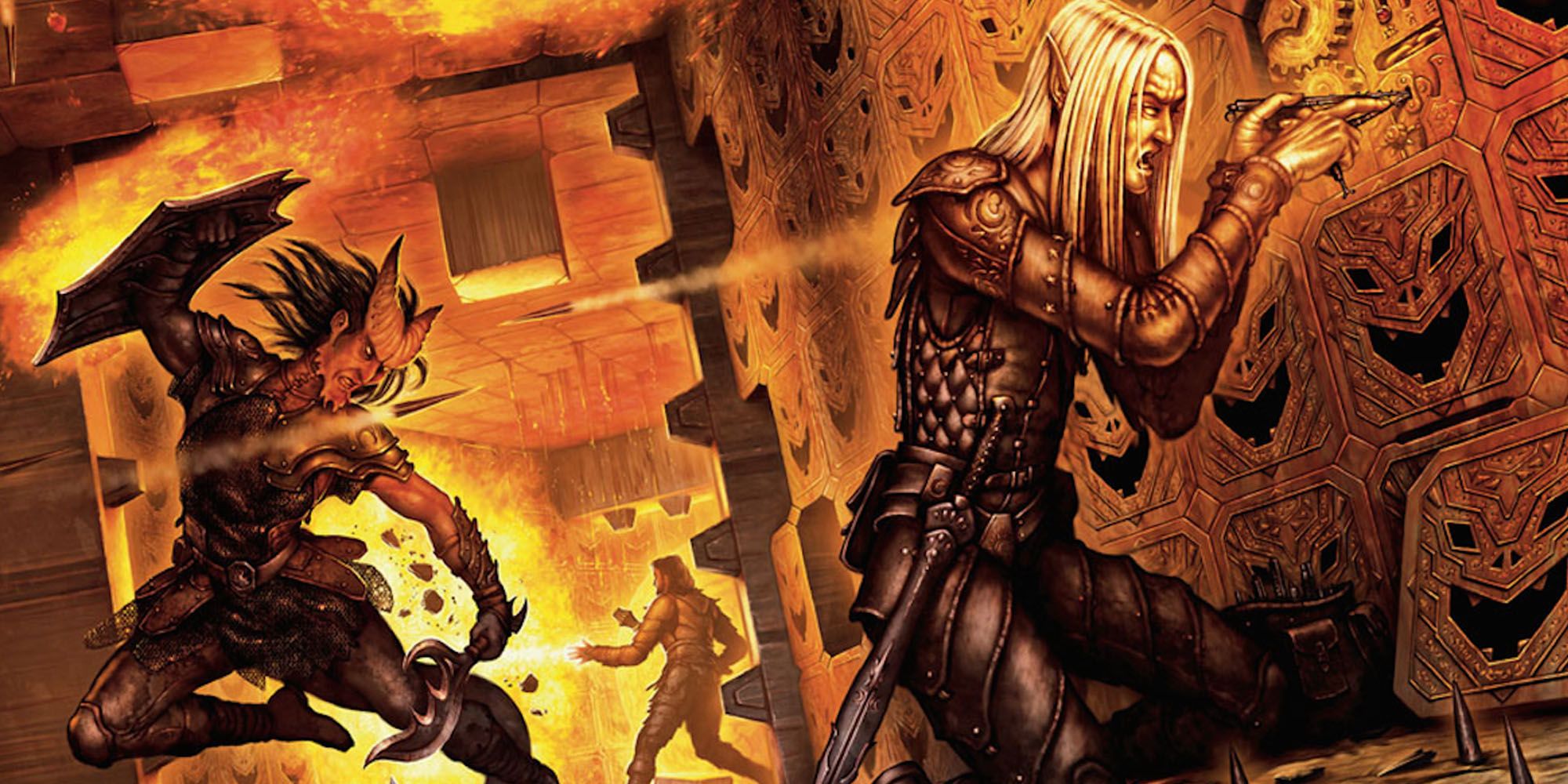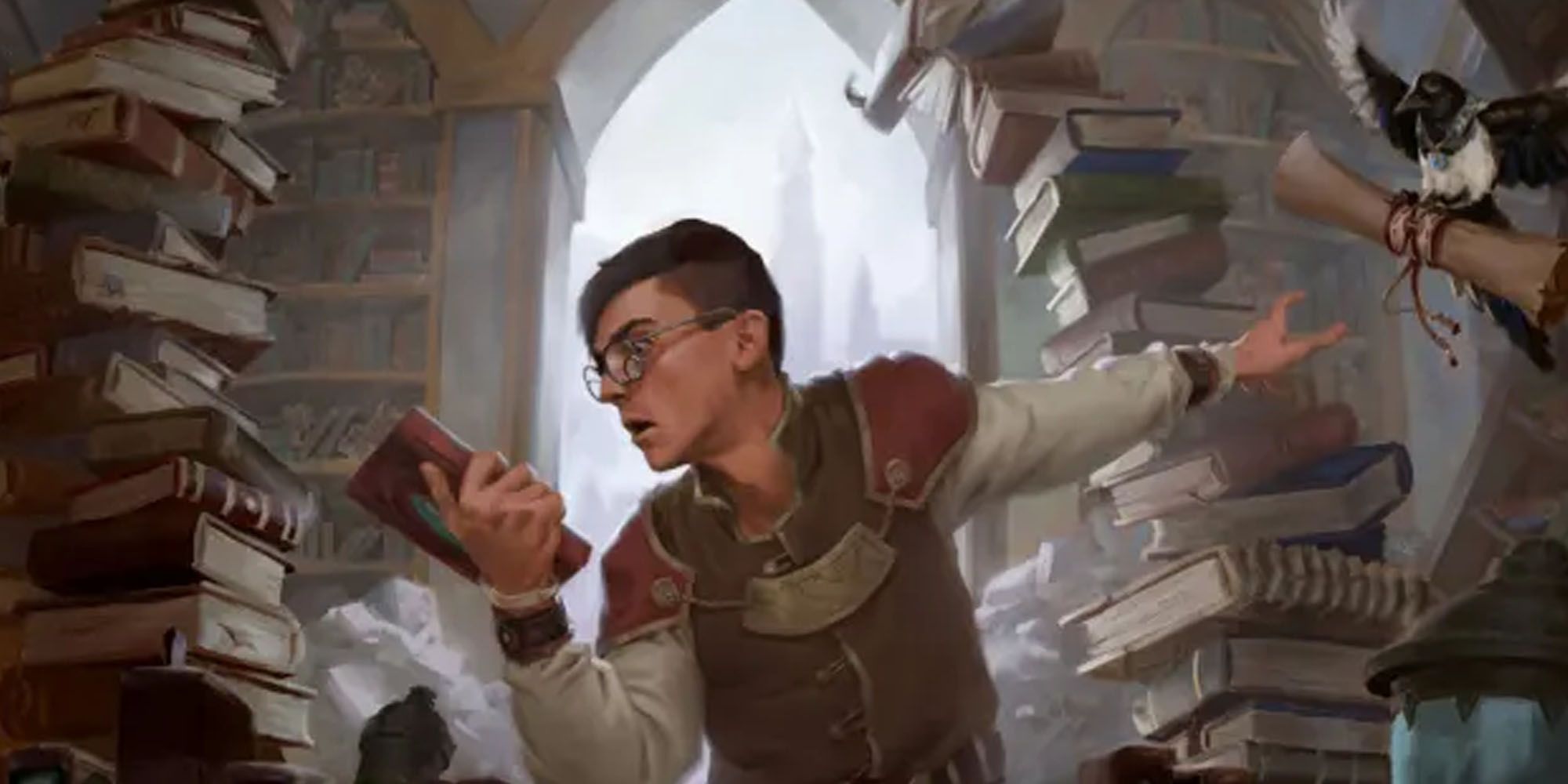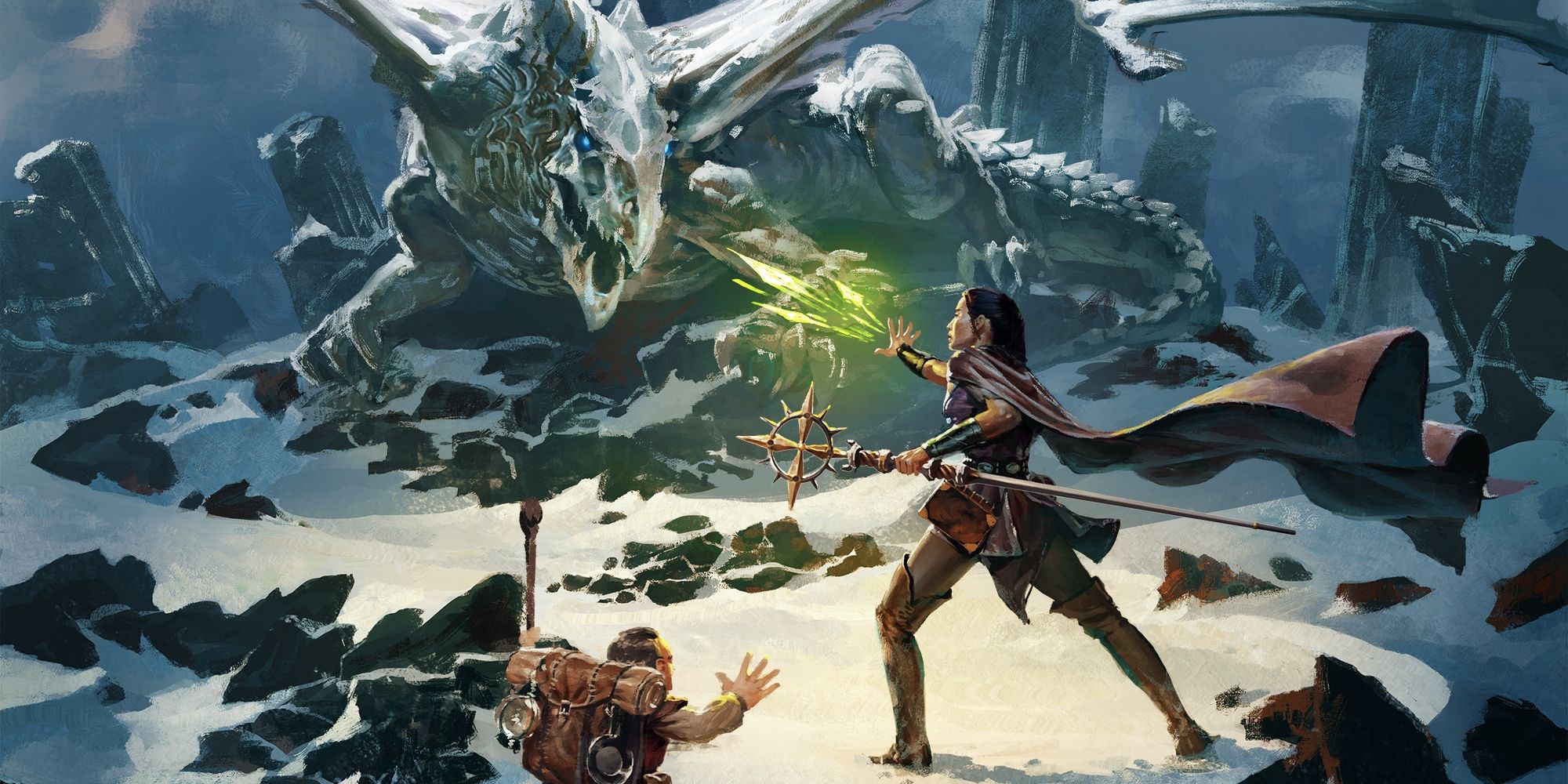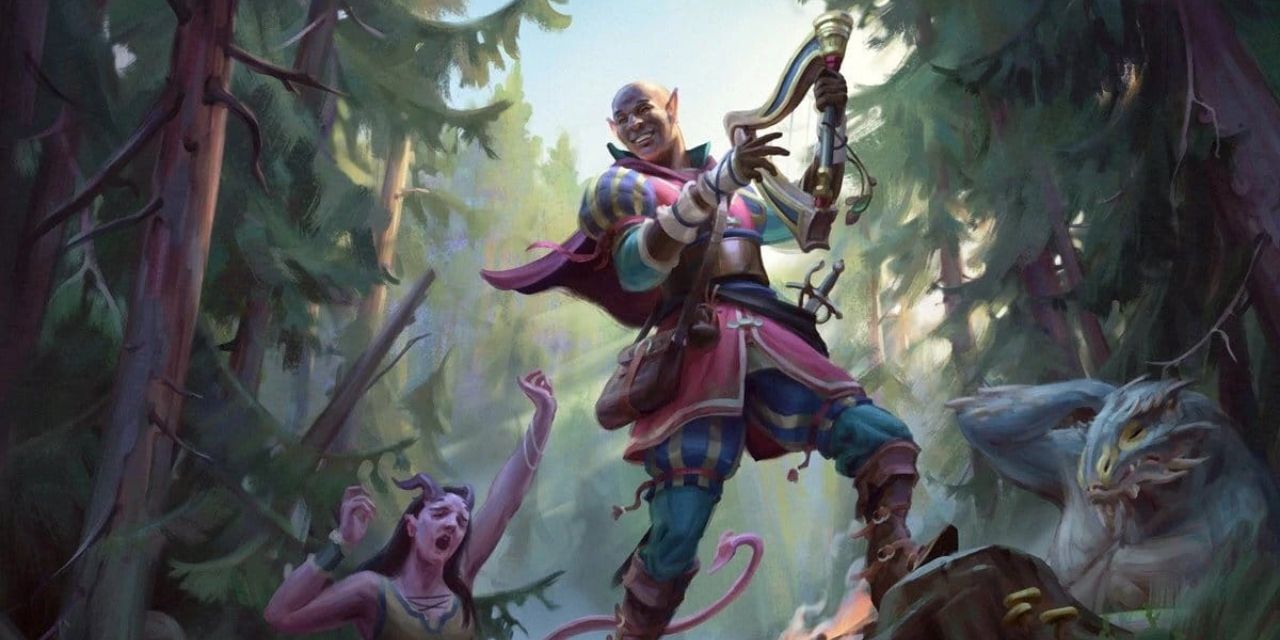Nearly every action taken in a Dungeons & Dragons game requires a certain skillset to be successful. While negotiating with diplomats or nobles, how well the player communicates is highly dependent on their Charisma, just as the swing of a warrior's weapon is influenced by that player's Strength. There are 18 skills, and each one of them is determined by the player's core stats and the modifier those stats provide.
In addition to those skills, there are also tools and kits that require proficiency to use successfully. For example, using Thieves tools to pick a lock or disarm a trap requires a Dexterity check to see if the player completes the task or breaks their lockpicks trying.
How Skills Are Determined
Skills and toolsets draw their power from the player's core stats. A player who focuses their energy on Strength will find that they tend to exceed at Athletics checks to determine how they fare pushing, lifting, carrying. jumping and smashing. The higher their STR score, the higher their modifier will be, meaning the odds of success are increased.
Athletics is the only STR-based skill, and while that may seem short-sighted, a player's athleticism contributes to a number of physical skills. Alternatively, in some cases the DM may allow players to use their Dexterity-based Acrobatics skill instead to determine how easy it is for them to climb a rock face, navigate a difficult descent or land successfully when leaping from one area to another.
DEX based skills focus on the player's agility, influencing Acrobatics, Sleight of Hand and Stealth -- all of which require finesse. Charisma influences the characters ability to accomplish their goals through the power of their words and deeds. CHA based skills include Deception, Persuasion, Performance and Intimidation, all of which can be used to convince others that their way is the right way and it would be in their best interest to fall in line.
Wisdom and Intelligence seem similar, but the skills they influence are very different. For example, WIS skills focus on how well the character navigates the world in which they live based on their past experiences. WIS influences skills like Animal Handling, Insight, Perception, Medicine and Survival. Meanwhile, INT draws from the player's ability to think on their feet and lends its power to skills like Arcana, Nature, Investigation, History and Religion.
How Skill Checks Work
Because the expansive skill list is drawn from D&D's six core stats, skill checks serve a similar purpose to saving throws. However, they are not to be confused with one another. Saving throws are made using only the core stats, while skill or ability checks use the stat modifier, as well as any proficiency bonuses the player may have on a particular skill.
Some classes provide extra proficiency with certain skills that enhance their talents. The Bard or Rogue, for example, have Expertise that, in some cases, allows them to double their bonus and potentially achieve highly successful skill checks. Sometimes their total is so high that even rolling 10 or lower they can still achieve 20+ after adding their skill check bonus to the roll.
What to Do When a Different Skill Check Would Work Better
When it comes to making a skill check, it is often up to the Dungeon Master to determine which skill will be used. In some cases, it might seem like one skillset would work better than the proposed skill, and arguing for an alternative may not be easy. Taking time to explain how the intended skill would be used in detail may persuade the DM to permit use of an alternate skill.
Swapping out Acrobatics for Athletics is a common example, but this is not the only case in which this might work. In some instances, it may be easier for a player to use their WIS-based Perception to analyze a scene or situation than it would be for them to rely on INT-based Investigation. Being able to make a case for how one is not only better than the other for the situation, but why it would be more logical for that particular character to do so is essential in showing the DM how it would work.
How to Incorporate Skill Contests
Skill contests pit two characters against one another in a test of their abilities. For example, two Bards might want to face off to prove once and for all that they are the best in show. To do this, they would each make a skill check using the applicable skill, add their modifiers and whoever came out on top with the highest score wins the contest. This can be applied to any manner of skills, including games of chance the DM integrates into the game.
This could just be a simple bit of fun where players get a chance to use their skills (particularly those which go underutilized in a normal campaign). However, skill contests could also be a way to incorporate some competition, puzzle or other activity that doesn't involve combat. With so many campaigns focused mainly on hitting thing hard, skill contests are a great way to add some variety and give other characters a chance to shine.

